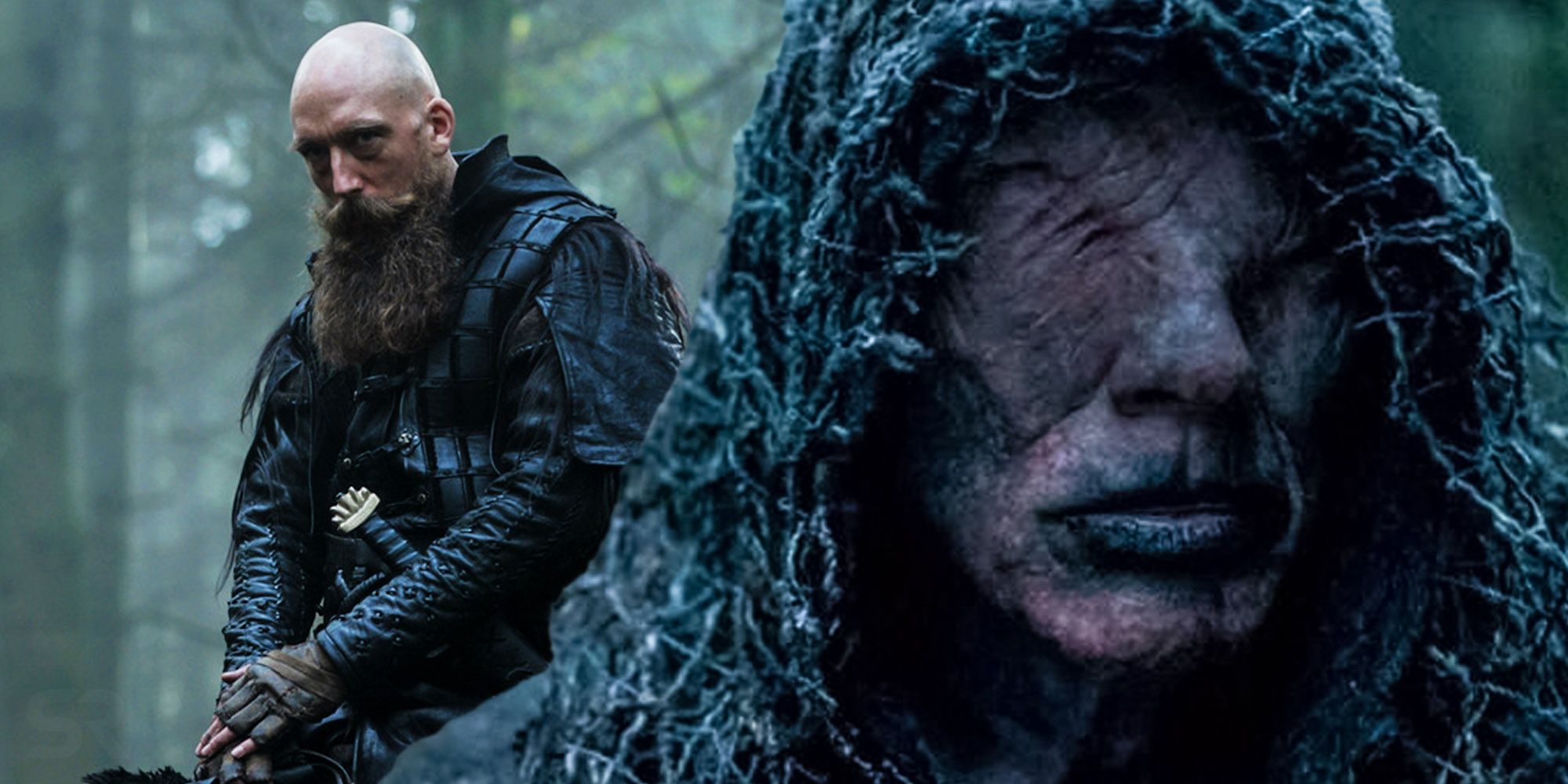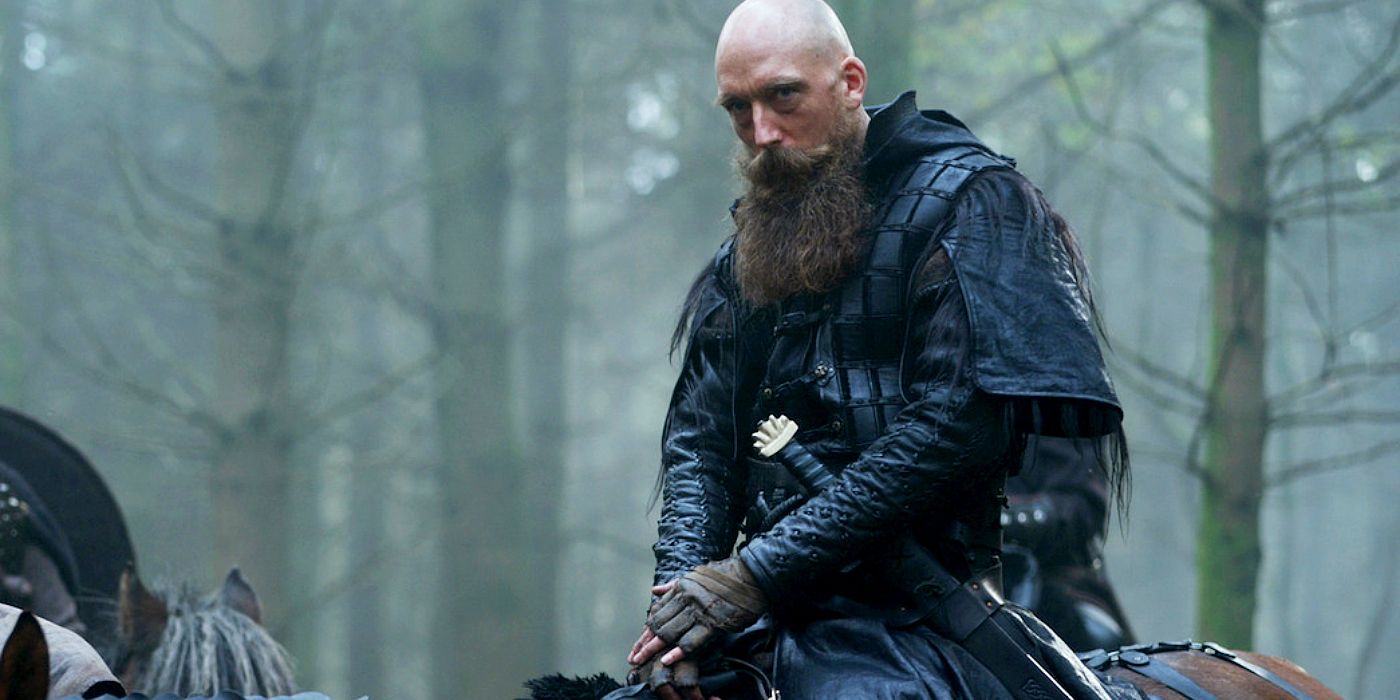Jarl Kåre proclaims to have had visions of The Seer in Netflix’s Vikings spinoff Vikings: Valhalla, a fact that his Christian comrades (King Olaf included) seem to have trouble believing. The Seer is the only character in Valhalla to return from the original series, albeit as a shade of a man long dead. The series has always embraced the possibility of the divine, with Ragnar himself even claiming to be descended from the All-Father, Odin, but whether or not Kåre’s brushes with The Seer are an intervention of the gods is somewhat unclear.
The Seer first appears to Freydis in a dream during her time at Uppsala, the spiritual center of pagan Viking society. Kåre shares a similar vision as Freydis, manifesting The Seer shortly before ransacking Uppsala. Both warriors have brief encounters with the deceased fortune-teller during which they lick The Seer’s palm and inquire about their destiny, but only Kåre claims that his visions persist, speaking of them to Olaf as they laid siege to Kattegat. Although Kåre insists his visions are real, neither the audience nor Olaf is shown evidence of them (barring his first vision at Uppsala).
The simplest explanation for Kåre’s visions would be that he’s mad, driven to delusion by the incomplete knowledge given to him via prophecy. Kåre effectively says as much himself, hesitating to share the entirety of his visions with Olaf for fear of sounding crazy. As a child, Kåre watched as his older brother was sacrificed to the gods at Uppsala, which evidently had a lasting impact on him and laid the foundation for his hatred of the pagans and fervent conversion to Christianity. Perhaps the Seer is nothing more than a manifestation of Kåre’s guilt, but the similarities his vision shared with Freydis’ suggest that it may be something more.
Both Freydis’ and Kåre’s visions in Vikings: Valhalla pertain to the prophecy of “The Cross That Carries The Sword,” a title to which both seemingly had a claim. The only one of Kåre’s visions the audience is shown ends with him asking about his destiny, but the answer he receives is never actually shown. This is immediately followed by his destruction of Uppsala. Perhaps the Seer appeared to tell Kåre that he was not The Cross That Carries The Sword, prompting his violent outburst and fueling his need to prove himself in the eyes of his God. Every subsequent vision Kåre had of the Seer may have then simply been a delusional madman attempting to convince himself of a destiny he knew was not his own. It could also be that the prophecy was vague but Kåre took from it what he wanted, reading just enough into it to justify his destruction of the pagan holy site and all its priests.
It is difficult to say with certainty whether or not Kåre (or Freydis, for that matter) truly encountered the spirit of the Seer. The show has always stopped just short of confirming the supernatural, despite the many inexplicable occurrences that take place within it. It seems likely that The Seer will appear again in Vikings: Valhalla season 2, but whether it will be as a metaphorical symbol of destiny or a tangible example of the will of the gods remains to be seen.


